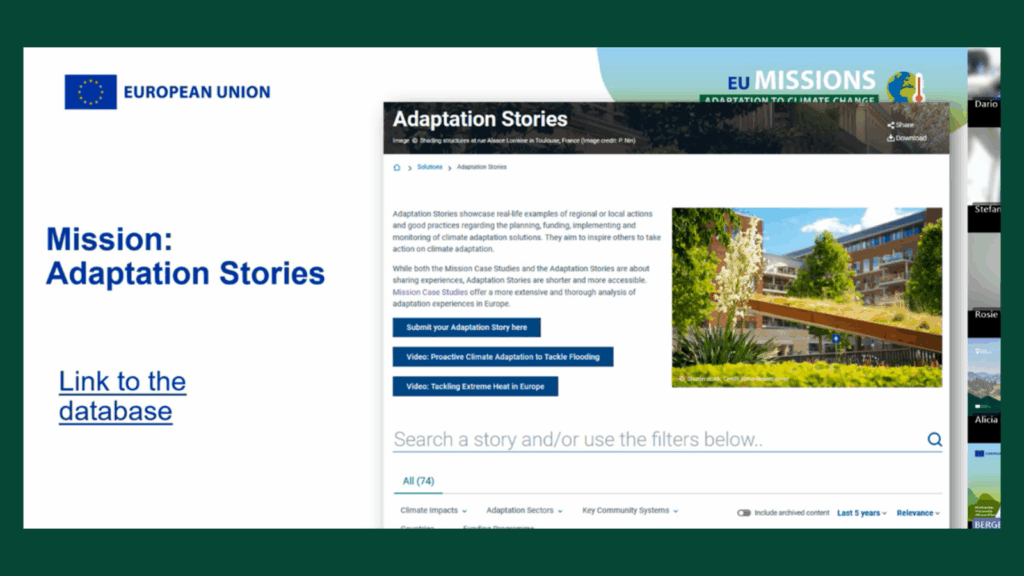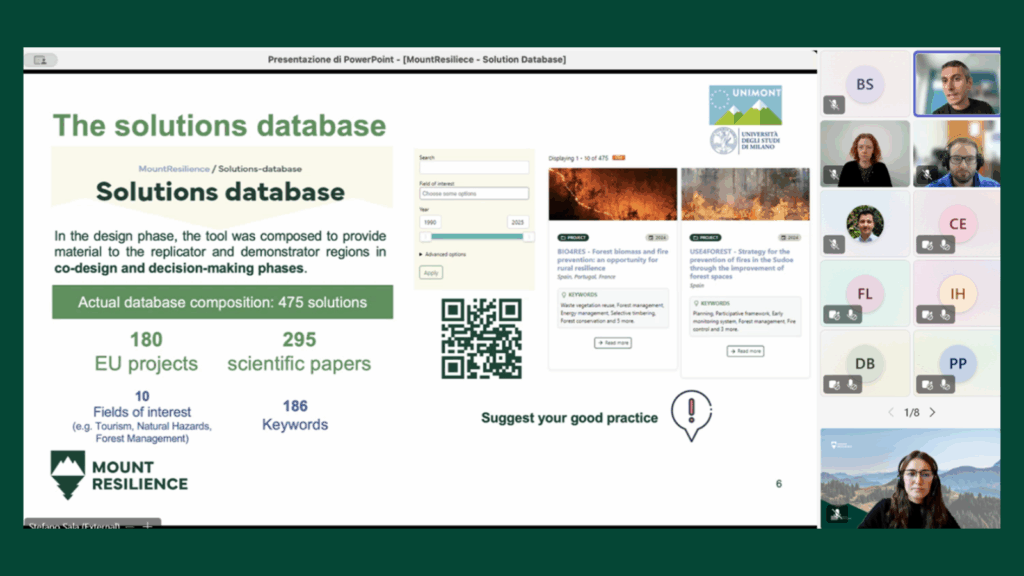The second session of the MountResilience Community of Practice took place online on 30 September 2025. Bringing together researchers, policymakers and practitioners, the event shone a spotlight on several resources, tools and networks that are helping mountain regions adapt to the impacts of climate change by collecting, storing and sharing knowledge and making it publicly available for mountain actors.

Europe is warming faster than any other continent. For mountain regions, this means a perfect storm of challenges: melting glaciers, biodiversity loss, water scarcity, and economic impacts on tourism and agriculture.
A survey by the EU Mission Adaptation revealed that access to usable scientific data and risk assessment remains a major barrier. To help address these challenges and support local and regional actors in making informed adaptation decisions, the Community of Practice dedicated this session to exploring tools that can make knowledge more accessible and useful for mountain stakeholders.
Sophie Berger, Policy Officer at the European Commission’s Directorate-General for Research and Innovation introduced several publicly available resources developed under the EU Mission on Adaptation to Climate Change.
These include a Tools Database to support every stage of the adaptation process, a collection of local Adaptation Stories written by regions themselves to foster peer learning, and a Case Study Explorer offering technical examples filtered by geographic area, including mountain regions. Together, these resources are designed to inspire and equip local actors with practical knowledge and connections.
Mountain-specific tools
Stefano Sala and Dario Pezzotti from UNIMONT – University of Milan (coordinating partner of the MountResilience project) presented the MountResilience Solutions Database, a newly launched repository of case studies and scientific publications relevant to mountain territories. Covering topics such as forest management, tourism, agriculture, and natural hazards, the database also includes implementation details like funding opportunities, making it a practical resource for stakeholders seeking to translate proven concepts into local strategies.

Rosie Witton, Climate Change Research Fellow at the Stockholm Environment Institute, introduced the global initiative Adaptation at Altitude and guided participants through three complementary platforms managed within this programme: a Solutions Portal featuring tried and tested practices, a knowledge hub on weADAPT dedicated to adaptation in mountains, and a Knowledge Network that convenes regularly to exchange experiences and accelerate adaptation in mountains.
From inspiration to replication
Throughout the session, the speakers highlighted a recurring theme: the challenge of moving from inspiration to replication. While solutions may be context-specific, the underlying issues, such as balancing livelihoods with ecosystem protection, are often shared. They emphasised the importance of political support to embed adaptation into policy, the value of open dialogue and peer exchange to make technical knowledge more accessible, and the need to extend awareness beyond expert circles to avoid duplication and missed opportunities.
To take part in future sessions like this one, don’t forget to join the Community of Practice! The first Community Forum is currently being organised and will take place on 30 October. This internal meeting will bring together all CoP members to discuss priority topics for upcoming events and explore opportunities for collaboration.
You can see the slides of the presentation right here.
MountResilienceCoP_2_finalWatch the recording of the live event.
